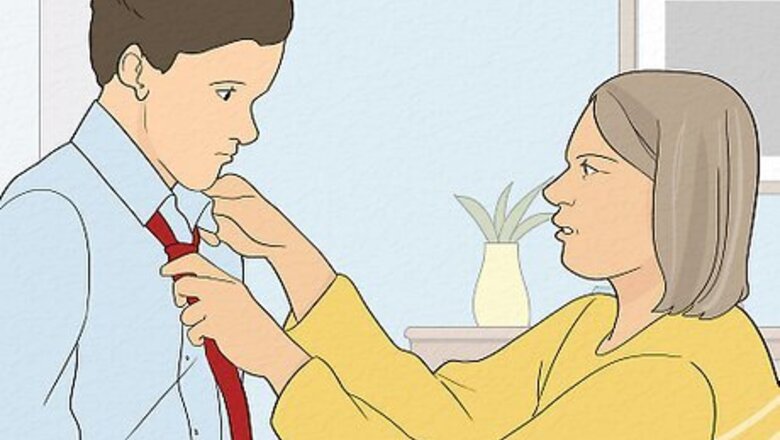
views
Enmeshment Trauma Meaning
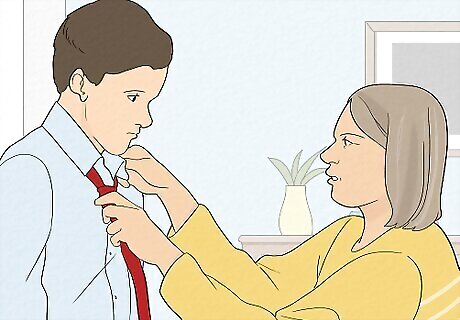
Enmeshment revolves around relationships with a lack of emotional boundaries. In a healthy family dynamic, there are clear lines drawn between the parents (caregivers) and children (receivers of care). In an enmeshed family dynamic, however, these lines become muddled and blurred as the children are continuously placed in a caregiver-type role. Enmeshment can also occur in romantic relationships. The concept of enmeshment was established by Salvadore Minuchin, a 20th-century psychologist.
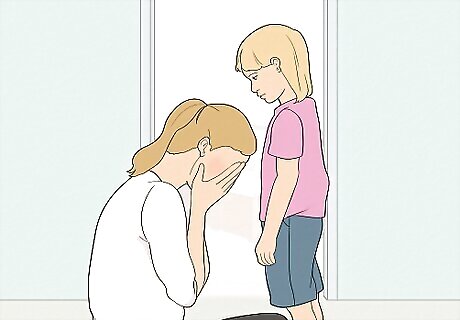
Enmeshment trauma is experienced by victims of this unhealthy dynamic. Children who grow up in enmeshed homes often lose their sense of self and struggle to separate their identity from that of their enmeshed family member. They grow used to taking on emotional loads that were never theirs to carry, and, as adults, may unintentionally recreate this unhealthy dynamic in their future relationships.
Signs of Enmeshment Trauma

Difficulty setting clear boundaries In an enmeshed relationship, parental figures take an overactive and emotionally unhealthy position in their child’s life—a mother, for instance, might try to treat her child as a close friend, while a father might treat his child as a glorified therapist. With such blurred boundaries created in your childhood, you aren’t totally sure how to establish clear boundaries as an adult. You might overextend yourself as a confidant to your friends, even if you don’t really have the emotional bandwidth to support them.
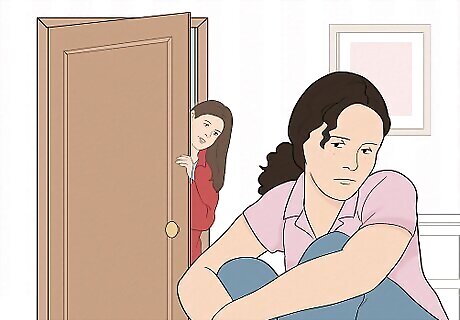
Lack of privacy As a child, your parents never gave you the space to grow as an individual. Instead, they were relentlessly overinvolved in your life, and may have wanted to know every detail about you. Because of those experiences, you struggle to understand the importance of privacy and how to maintain it. You might struggle to give your friends some breathing room because your enmeshed parent always demanded to be in your space when you were a child.

Conflict-avoidant When you were younger, you may have discovered the consequences of disagreeing and standing apart from an enmeshed parent. Thanks to this, you may have grown to fear conflict in all of its forms. You may have experienced some type of abuse at the hand of an enmeshed parent when you disagreed with them.

Lack of personal identity In enmeshed relationships, it’s often difficult to tell where you end and where your enmeshed parent begins. Your identity is so wrapped up in theirs that you struggle to identify qualities and aspects about yourself that are uniquely you. You might realize that a lot of your personal preferences are actually molded from an enmeshed parent’s preferences.
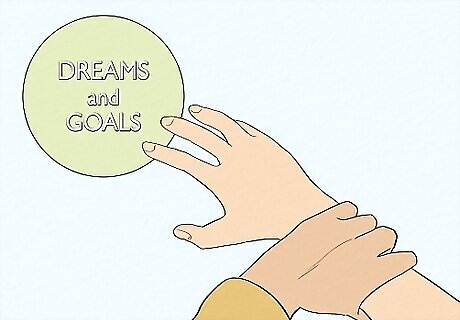
Inability to follow your own goals and dreams When you’re a victim of enmeshment, you often sacrifice your own goals for the sake of appealing to the enmeshed figure in your life. You’re always making compromises and never pushing yourself to meet your potential. You might have dreams of pursuing a career as a writer, but settle for a retail-level job for the sake of being available for your enmeshed parent.
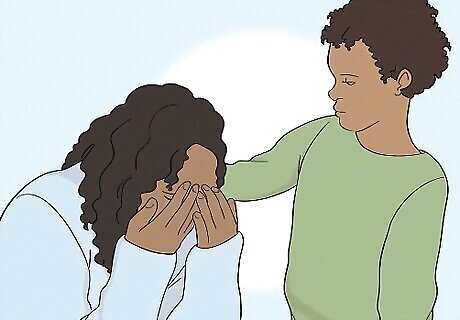
Responsibility for your parent’s emotional well-being As a child, your enmeshed parent forced their feelings and emotional well-being onto you until they blended with your own. In the process, you developed a sense of responsibility for how your parent felt, especially in negative circumstances. When your parent went through a rough emotional patch, you felt responsible for all the bad thoughts and feelings they were experiencing.

Discomfort or struggles with personal relationships Your enmeshed figure dominates many aspects of your life, to the point where you’re spending much of your time around them. In the aftermath, you might not feel comfortable pursuing new friendships or relationships. You might spend so much time with an enmeshed parent that you don’t feel comfortable dating a new partner.
Long-Term Consequences of Enmeshment Trauma

Weak sense of self Who are you? What do you like? What makes you tick? These are questions you never quite know the answers to, because your enmeshed parent never allowed you to discover yourself and develop your own identity.
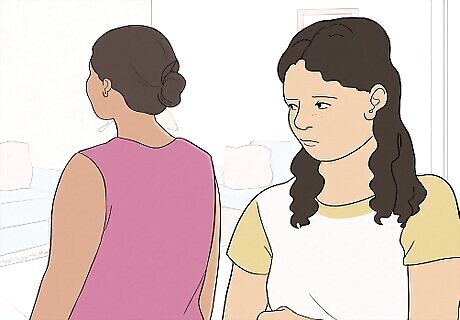
Low sense of self-worth As a victim of enmeshment, you might feel like you’re constantly on display for the enmeshed figure in your life. Each day, you were filled with fear at the idea of being judged or criticized by them, which impacted your self-esteem in the long run.
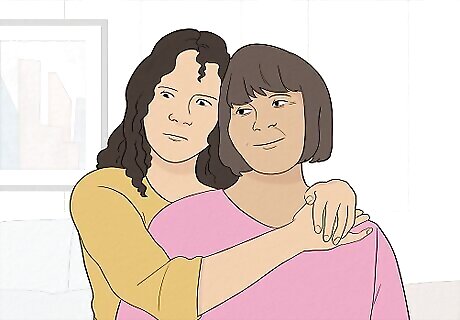
Need to be close with the enmeshed family member Even as an adult, you have a hard time existing out of your enmeshed parent’s orbit. You always feel drawn back to them, especially when it comes to making big decisions about your life.
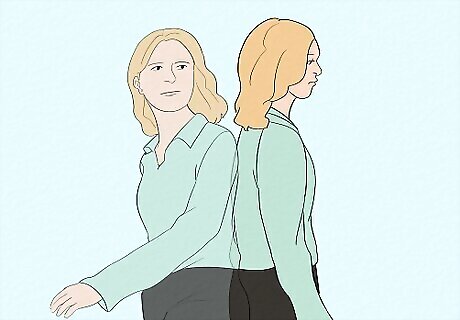
Depersonalization and derealization Depersonalization-derealization disorder revolves around a sense of disembodiment: you feel like you’ve stepped out of your own skin, and that the surrounding environment isn’t quite real. It’s not unheard of for victims of enmeshment to experience derealization and depersonalization in the aftermath. While only a mental health professional can diagnose you with this disorder, it can help to take a closer look at your symptoms. Head over to wikiHow’s Derealization Test to take a deeper dive.
How to Heal from Enmeshment Trauma

Acknowledge that you’re a victim. It can be hard to put such a definitive label like “enmeshment” on a core relationship in your life—but you deserve to be honest with yourself and be in charge of your own life. Try to compare your experiences with those of a friend. Viewing your family dynamic in perspective can help you see it for what it really is.
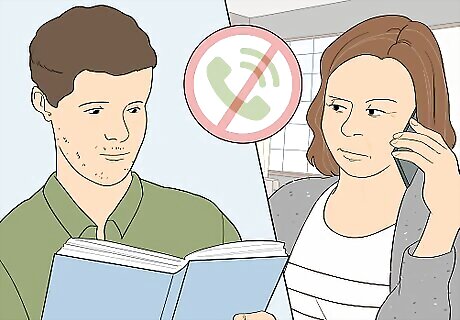
Set clear boundaries with the enmeshed figure in your life. At its core, enmeshment boils down to a severe lack of boundaries between two individuals. When you start to set boundaries in your life, you can start to reclaim your identity and independence. Setting boundaries will be different for everyone, but it might look something like: Refusing to talk on the phone with your parent more than 1-2 times each week Refusing to be an emotional confidant to your parent when they need one Branching off to pursue hobbies that are different from your partner’s Making major decisions without consulting your parent

Learn more about yourself and your interests. Sit down and think about the hobbies that pique your interests, rather than the enmeshed figure in your life. Have you always wanted to give swimming a try? Do you find yourself drawn to the latch-hook kits in the craft aisle? Give yourself the freedom and permission to explore and bond with yourself as you learn what makes you happy. Here are some tips to help you get the process started: Give new activities and hobbies a try, even if they seem totally out of your wheelhouse. Spend some time identifying your core values. Hang out with people who like the same things that you do. Self-reflect on who you are and what you want to do with your life.
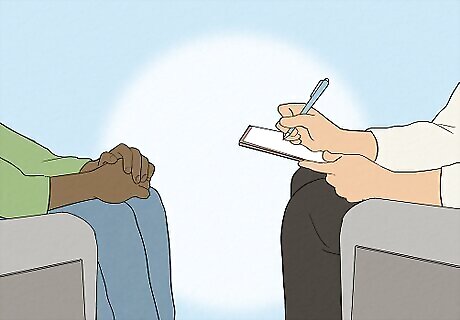
Meet with a licensed mental health professional. Enmeshment can have a lot of lasting psychological effects, especially when you’re an adult. A licensed mental health professional (like a therapist) can help you take a deeper dive into your experiences so you can grow and heal from them. Family therapy is also a viable option if you and your enmeshed family member are feeling up to it.

Be compassionate and patient with yourself as you heal. Just as enmeshed relationships don’t form overnight, it’s not possible to heal from them overnight, either. Treat yourself with the same kindness, compassion, and understanding that you would give a friend dealing with this tough circumstance. You might feel guilty as you take steps away from the enmeshed figure in your life, which is perfectly normal and okay. With time, you will heal—and you’re worth whatever time and effort it takes to reach that point!
Key Takeaways
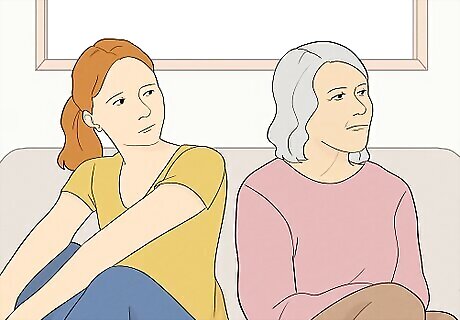
Enmeshment trauma isn’t the victim’s fault. Enmeshment trauma forms at the hands of the adult, especially in cases of familial enmeshment. As a child, you are mistreated and misled by the person who’s meant to care for you and guide you—and the way they chose to use and hurt you is not your fault.

It’s possible to heal from enmeshment trauma. It may take some time before you find your sense of self and freedom, but it is possible. By setting boundaries, getting to know yourself, and treating yourself with kindness, you can blossom into the person you were always meant to become.




















Comments
0 comment